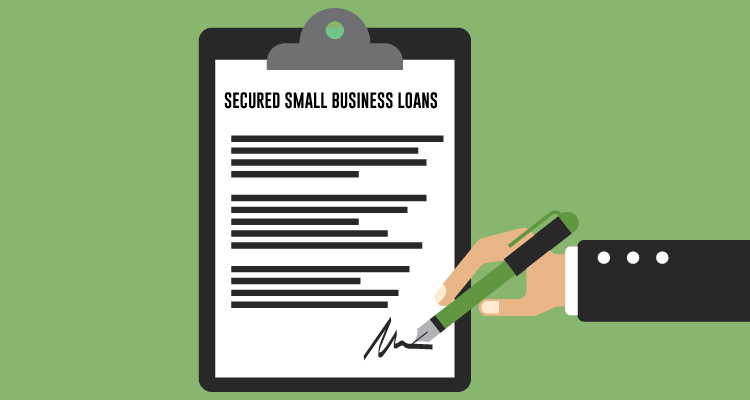Applying for financing or a loan is a frustrating and stressful task for most business owners. Besides taking the appropriate steps, like finding possible lenders and paying down your previous, which both take up time and money, there’s still the possibility that you may not qualify for a loan.
And, unfortunately, it may not actually be your fault.
Remember, taking on debt is risky for both you and the lender. That’s why lenders rarely take a chance on businesses that they deem too risky for them, such as a new business or a businesses that’s in an unpredictable industry.
However, that doesn’t mean that you can’t obtain a loan. To protect both parties involved, lenders issue secured loans. In fact, a portion of small business loans are secured. But, is a secured small business loan right for you and your business?
Table of Contents
ToggleWhat Are Secured Loans?
Before we get ahead of ourselves, let’s quickly explain what a secured loan is.
In it’s simplest definition, a secured loan is a loan that is secured against an asset. This means that if you can’t repay the loan, the lender has the authority to seize this asset and sell it in order to get its money back.
Lenders usually offer secured loans to business owners who are in-need of capital to launch a new business, grow an existing business, or pay for business-related expenses such as new equipment or real estate. Because this kind of loan requires upfront collateral to reduce the risk involved for the lender, the interest rate is lower than other types of loans.
Let’s back up for a second. What exactly is considered collateral?
Put simply, collateral is anything that you or your business owns that can be sold for cold hard cash, such as real estate, equipment, your home, and vehicles. If you pay back the loan, the assets will be returned to you. The lender holds the title or deed until the loan has been paid in-full.

What Types of Businesses Use Secure Loans?
Businesses of all shapes, sizes, and industries can use secured loans as long as they have collateral. Whether you’re a freelance web developer, lawyer, or mechanic, if you have mutual funds, real estate, vehicles, inventory, equipment, and accounts receivable then secured loans offer lower payments and longer repayment periods than unsecured, collateral-free loans.
The Advantages and Disadvantages of Secured Loans
Before rushing out and using your home as a collateral for a small business loan, carefully weigh the advantages and disadvantages of secured loans.
The Advantages
- If your credit rating isn’t great you still have access to a loan since the risk is reduced because it’s backed by an asset.
- Rates are usually lower than other types of loans.
- Secured loans have longer repayment periods. In fact, some secured loans have repayment periods of ten years or longer.
The Disadvantages
- You could lose your home, car, or property that you used as a collateral. However, this is only the case if miss payments. If you crunch the numbers and realize that you can’t make monthly payments, then don’t take the risk.
- You may use secured to consolidate your debt. That’s fine if you’re responsible. The downside is that you may get too careless with the loan and use it for unnecessary expenses, like purchasing leather furniture for a swanky downtown office.
- Secured loans have variable interest rates, which could throw a monkey wrench into your budget if the interest rate jumps-up.
Tips For Using Collateral for a Loan
If you believe that the pros outweigh the cons and you’re positive that you’re business is healthy, then a secured loan could be the key in expanding your business. Remember, secured loans can have lower interest rates, a longer repayment period, and the opportunity to build credit a long-lasting relationship with lenders.
If you are going to use collateral, are some of the best ways that you can mitigate the risks.
- Hire an independent appraiser to determine the value of your assets so that you’re aren’t shortchanged or overestimate it’s worth. Also keep detailed records of your assets so that you know what you have and what they’re worth.
- Know what you can use as collateral. Real property, business inventory, accounts receivable, and cash savings or deposits can all be used as collateral.
- Understand the risks by speaking with your financial adviser.
- Negotiate if you can. Lenders are conservative when it comes to valuing your assets, so you may not get the most bang-for-your-buck.
- Consider peer-to-peer lending for loans that are less than $25,000, They’re easier to obtain and have fixed monthly payments.













